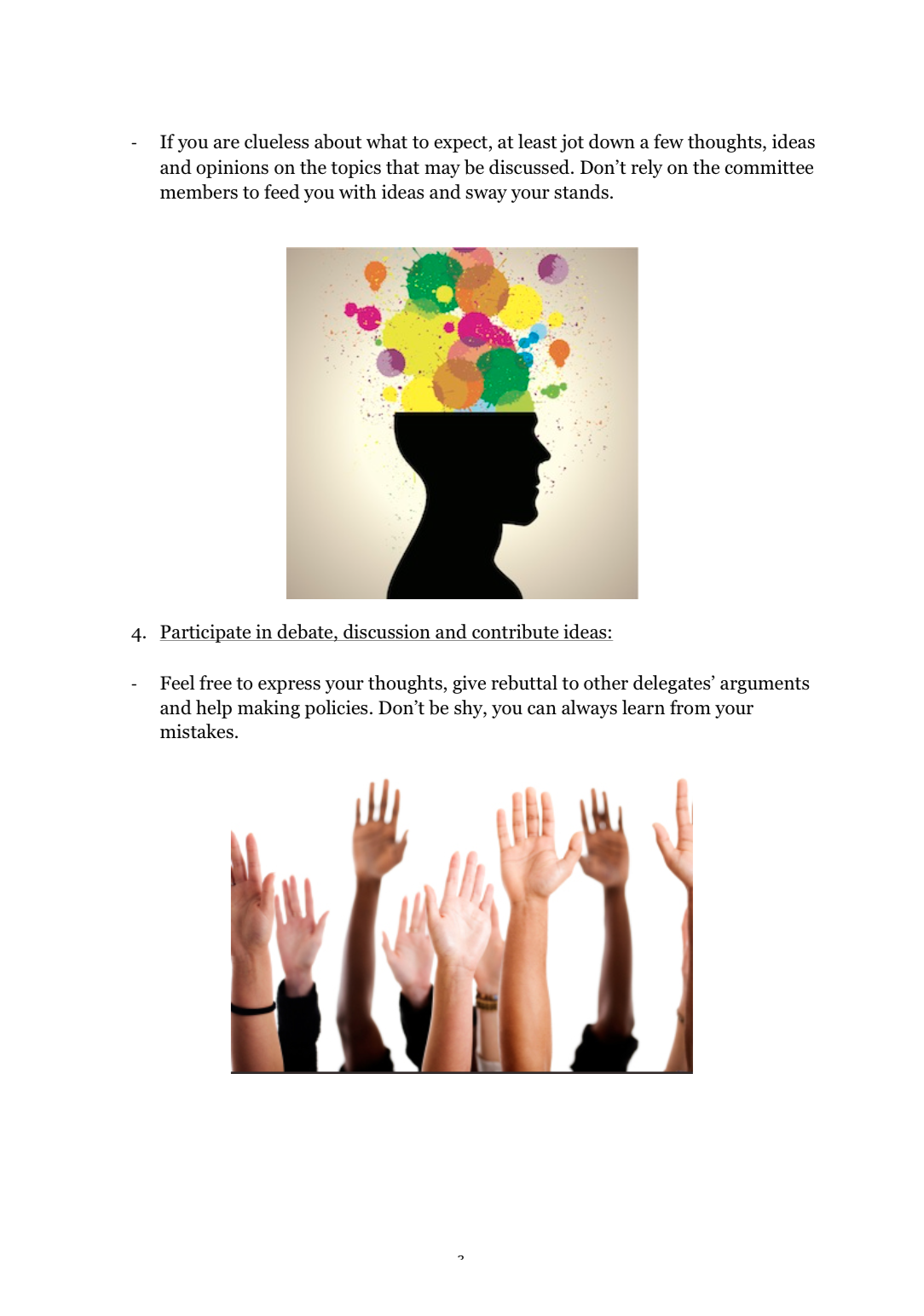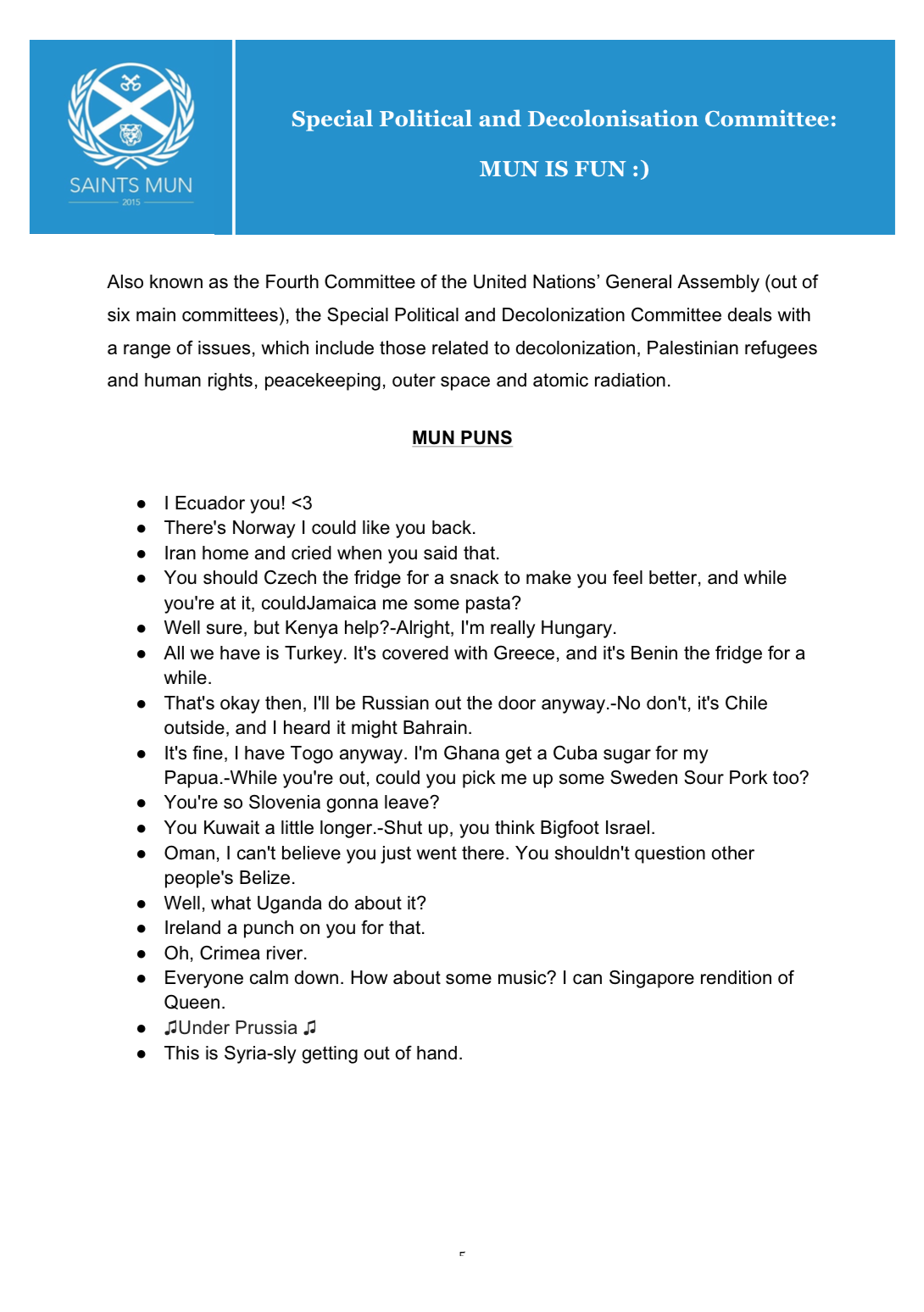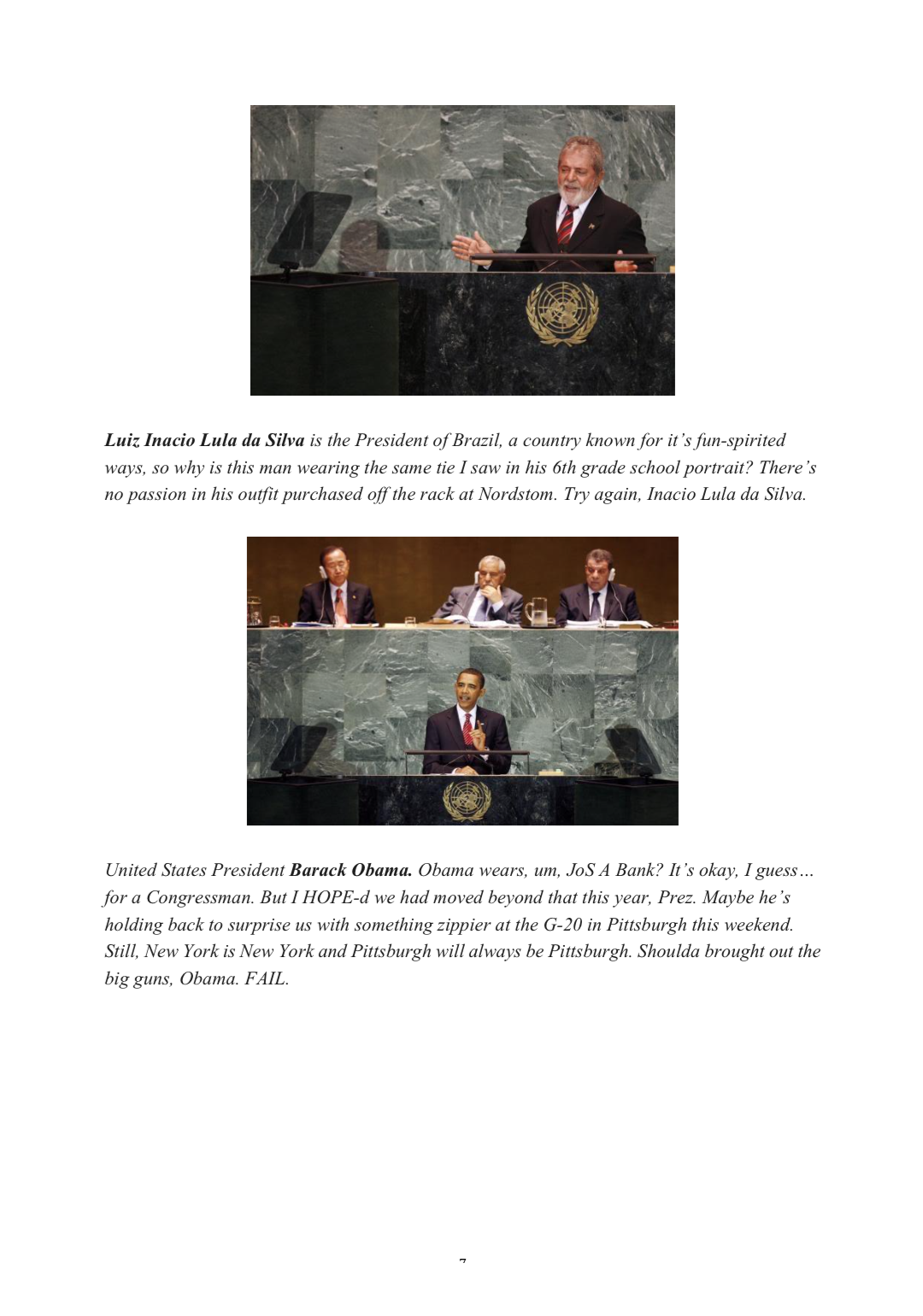THE first Council Session of the first day of Saints Model
United Nations Conference began with, as typically expected, a standardized
narrative of Opening Speeches, General Speakers Lists and Caucuses. What was
atypical of dia uno was, however, the variegated pace of and happenings
in each council -- when SOCHUM (Social, Humanitarian and Cultural Committee)
has just transited from opening speeches to the general speakers' list, SC
(Security Council) is well into active debate on the adoption of policy responses
to the threat of ISIS (Islamic State of Iraq and Greater Syra), in part due to
differences in council size.
HOWEVER, the Day Two found councils steeped in increasingly
engaging discourse as resolutions are formulated and debated upon. While some
councils are largely agreeable on most policies, other councils appear to be
drastically polarized, and more than one would wonder: Where are we heading to?
Here, the Press Corps takes a closer look, and hopefully,
bring you the answers...
Security Council: Strike or No Strike? The Opportunists Are
At Play.
Here is where the drama usually takes place, a council
dominated by the presence of the Permanent Five, itself an oft-polarized group,
and it didn't take long before the rift grows apparent. As the council launched
into debate on the most effective approach to tackle the most influential
extremist group in world history which has become, verbatim in the Iraqi
delegates' words, "far greater than [the Security Council]'s petty
squabbles". Iraq and United States of America began with proposing air
strikes as the 'not-perfect-but-the-best-we-have-now' solution while Russia,
one of the main arms suppliers to the Middle East, advocated for a more
diplomatic stance in calling for the termination of asset inflow to ISIS,
regaining control of oil-producing lands controlled by ISIS, a highly ambitious
plan, and arming the Syrian Army. Combined with the scenario of seemingly
irreconciliable differences between Iraq and Syria, the two key players, and
problems of insurgency in the turbulent region, coming to a satisfactory and
effective resolution for all parties has become a long yet interesting journey
to come.

Special Decolonization and Political Committee:
Commercialisation and Militarisation of Space
North Korea, Egypt, Sweden and Australia are at play --an
interesting combination, to begin with-- and they're playing a dangerous game.
In this council of active discourse, a tax system has been introduced on the
gains made by the private sector to mitigate the potential problems of
exploitation and proliferation due to the commercialization of space. Other key
issues highlighted included the problem of space debris, which, notably, has
been dismissed by some in their confidence in the ability of current arms
systems to “intercept falling debris before they cause any damages”. In the
legal quagmire of space regulation, spanning the lengths of both public and
private sectors in countries worldwide, the issue of liability, its
corresponding policy formulation and enforcement are heatedly debated. Perhaps
the best answer to the gridlock is a question plangently posed by the Egyptian
delegation: "...if not now, when? If not us, who?"

Social, Humanitarian and Cultural Council: The Issue of
Child Labour
Day One held a slow-going council session for SOCHUM,with
the opening speech taking up almost half of Council Session One for the largest
council in Saints MUN 2015, and the proper council debate was just coming into
form when the house was forced to adjourn for the day. In spite of this, the
next day, events took a better turn as more active discourse flourished, with
calls for increased transparency, assistance in adaptating the economic
frameworks of nations as they shift from reliance on child labour for the
production of goods and services to a more legal-aged workforce, as well as the
establishment of the Committee to Head International Labour Development (the
aptly named C.H.I.L.D.), a multi-lateral body dedicated to the monitoring and
elimination of child labour in affected nations. As countries with opposing
stances come close to reaching a compromise, a resolution was formulated and
still being debated upon as this article was finalised. Will it be passed? Or
will it be tabled? Well, the workings of the international body has, more often
than not, eluded the comprehension of even the experts in international
relations. And SOCHUM may surprise us yet.

Human Rights Council: Immediate vs Gradual Deportation vs No
Deportation: The Complex Solutions To Complex Problems
A council boasting a mighty delegation of 41, the Human
Rights Council stands as the second largest council this year. Surprisingly
though, Council Session One was considerably productive as delegates plowed
through Opening Speech, defining the rights of illegal migrants and the
problems they create on Day One. Definitions included, most notably, freedom of
religion (courtesy of the the Republic of Korea, much to the chagrin of certain
strictly theocratic nations), and frequent citations of the Universal Declaration
of Human Rights. Next comes the issue of deportation, with the limited
capacities of developing recipient nations in comfortably accommodating the
migrant inflow, and nations against deportation describing deportation as
"throwing illegal migrants around like balls". Day Two brought new
glimmers of hope as agreements with the Asian Development and World Banks were
proposed to improve conditions in home countries to target the root cause of
illegal immigration as well as shorter-term solutions to establish temporary
migrant shelters and skills training. However, the vexing issue of integration
and managing local responses to the influx of migrants remains at hand, and if
history taught the United Nations anything, it is that mindsets are slow to
change.


































